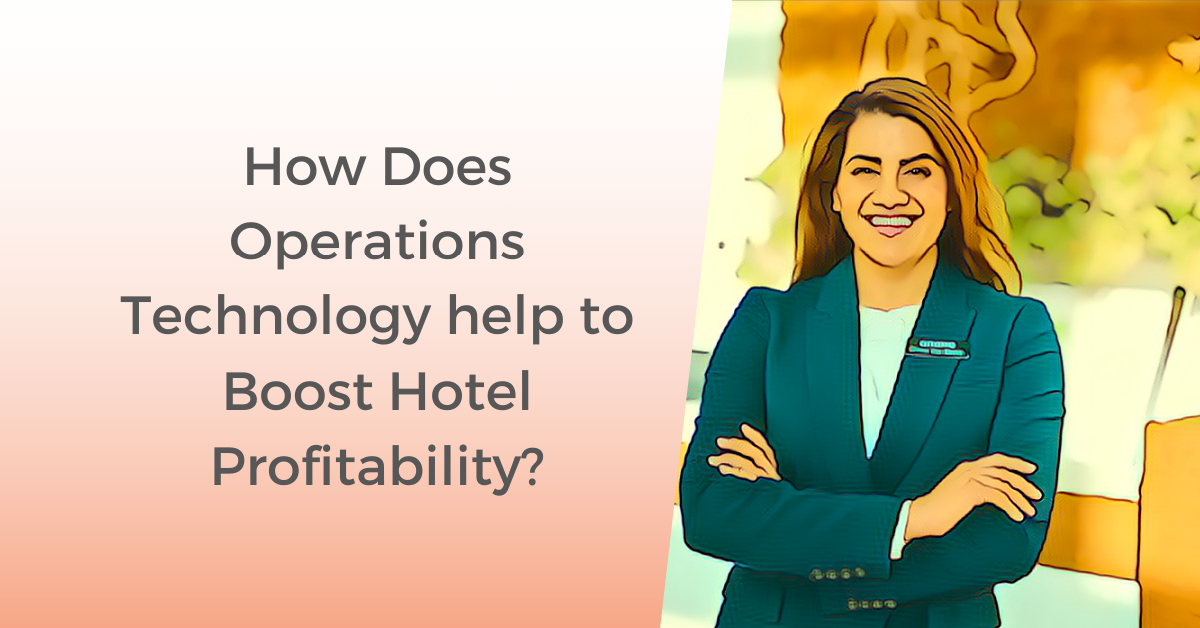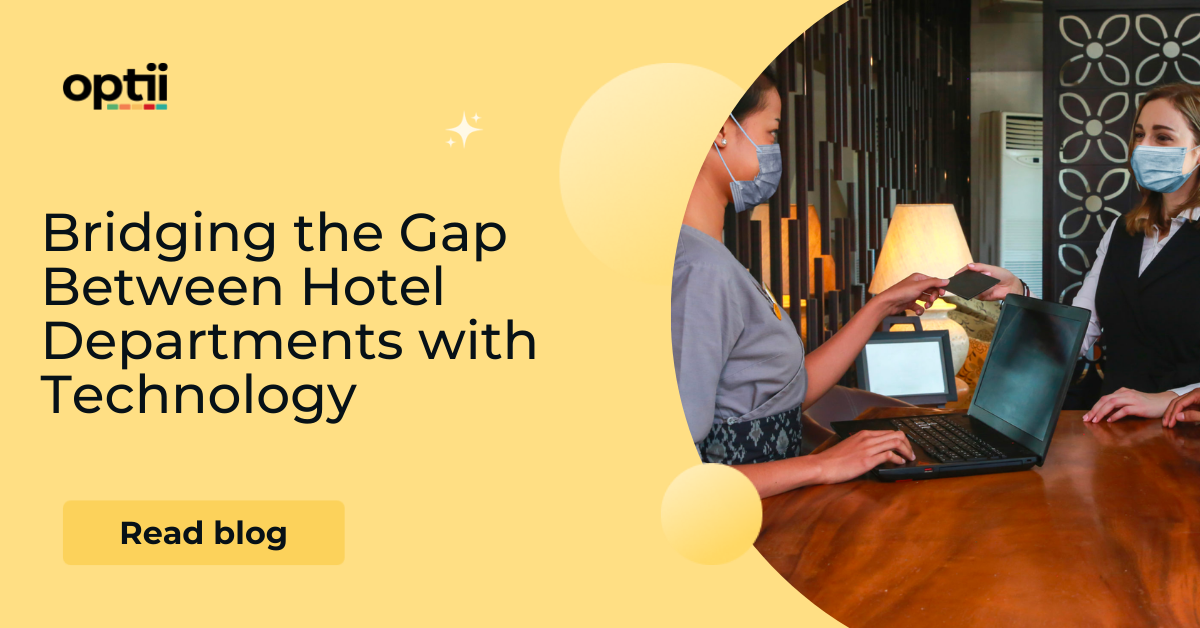How does operations technology help to boost hotel profitability?
Whether the hotel is a small boutique or a large international chain, the housekeeping department is often the most expensive in any hotel. With travel now at its highest levels since 2019 and room rates at all-time highs, hoteliers must leverage hotel operations technology to reduce the cost of the housekeeping department while improving productivity and quality.
The productivity gains from technology are just one way in which the hotel can boost profitability, it can also free up capital to raise pay for retention, improve the property, and invest in amenities – all of which contribute to an excellent guest experience and increased revenue.
Improved scheduling and time management
Hotel operations technology maps out the most efficient route for housekeepers to take which ensures they spend more time cleaning rooms rather than walking between them. This optimizes the housekeepers' time so that they can clean more rooms in less time resulting in cost savings. Artificial Intelligence (AI) continuously looks for the shortest possible route, which ensures housekeepers have the most optimized cleaning route available. These rooms can then be flagged for inspection through the intuitive app, giving ample time for managers to inspect the rooms thoroughly ahead of the guests’ arrival.
Operational technology can also predict the amount of time needed to clean each room, based on the customer's profile. For example, if one room is occupied by a business traveler and another by a family of four, then it’s likely that the room with a family of four will require more time to clean. This feature is critical to improving scheduling and time management as predictive technology can differentiate between the two rooms and estimate cleaning times accordingly.
Faster room turnaround times allow guests who arrive early to check in to their rooms sooner, meaning they no longer need to wait around in the lobby and take up luggage space behind the front desk. Shorter room turnaround times can also increase revenue as more rooms are available to be sold.
In addition, housekeeping managers can reduce time spent allocating tasks and scheduling cleans each morning as the process is automated through AI-driven hotel operations technology. Assigning rooms and scheduling a housekeeper’s timetable can take up to an hour and a half when done manually, but with the right hotel operations technology this time is cut to just 2 – 5 minutes. The AI technology automatically sets tasks based on availability and provides alerts for when items need to be addressed.
Housekeeping managers can also better adapt to evolving guest needs as they can set tasks through the housekeeping app rather than having to walk around the property to find available housekeepers. The same is true for housekeepers as it means they can view their schedule through a push notification on their phone rather than having to go back to the office to see their schedule. These small efficiencies better streamline manager time and ensure that low-value tasks are eliminated.
Reduces staff turnover
The hotel industry is well-known for its high turnover rates. Onboarding and training new staff members is expensive which makes retention essential for reducing costs. Retained staff also tend to have a deeper understanding of the hotel’s operations, which means guest needs are more likely to be met.
Labor shortages in the hospitality sector are resulting in exceptionally high labor costs. That said, many hoteliers still turn to hiring additional staff or outsourcing labor instead of investing in technology. Investing in technology allows existing hoteliers to be more productive, alleviating some of the pressures associated with a leaner team while also increasing job satisfaction.
Much of the frustration felt by housekeepers stems from miscommunication and misunderstandings; hotel operations technology can minimize many of these issues. Features like in-line translation help hoteliers overcome language barriers as messages are automatically translated in the app. This technology enables staff from different backgrounds to work together and feel more involved, which improves team spirit.
Hotel operations technology allows for better oversight which means housekeepers can benefit from direct feedback, helping them to develop their skills while ensuring the room meets high standards for guests. Generally, better communication leads to a more productive and optimized workplace which translates to an improved guest experience and higher revenue.
The data collected from hotel operations technology is invaluable to forecasting how many staff members are needed during busy and quiet periods. With this information, managers can reduce labor costs and improve staff satisfaction by accurately monitoring workloads and allocating tasks fairly. Linking the occupancy rate to housekeeping, allows managers to better manage labor depending on the needs of the hotel which ensures costs are effectively accounted for.
Hotel operations technology makes it possible to distribute the workload according to experience. Difficult and urgent tasks can be assigned to more experienced housekeepers to guarantee quality work. Managers may also choose to lighten the workload for new staff members to prevent them from feeling overwhelmed or give them certain tasks to build up their skills.
Higher revenue and increased cost savings provide the hotel with more cash flow to improve the hotel for its employees and its guests. Whether it's investing in better services and amenities or choosing to raise salaries, hotels with a bigger bottom line can make decisions that foster a more positive environment for guests and staff members.
Small cost savings can make a big difference over the long term. That’s especially true when it comes to making changes in the biggest department in the hotel. With travel rebounding, room rates soaring, and ongoing labor shortages, it's essential hoteliers turn to AI-driven technology to improve operations. Hotel operations technology helps the hotel make significant cost savings, increase its revenue, and deliver an elevated guest experience.






